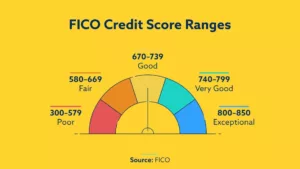You can request that a debt collector verify the amount and validity of a debt they claim is owed by you.
A debt collector contacts you regarding a debt. How do you know the debt is yours and that you actually owe them? Make debt collectors and junk debt buyers provide proof you owe them. What if the debt has already been paid or perhaps the Statute of Limitations has expired on the debt and you cannot be legally sued for the debt? Debt validation forces a collection agency, debt collector and even a law firm in the business of debt collection prove you owe a debt.
It is a powerful weapon against debt collectors that protects consumers from unfair and deceptive debt collection practices. Requesting debt validation is particularly helpful if the debt has been sold. Often junk debt buyers have little information about the debts they own.
Debt collectors purchase a portfolio of debts often with little more than basic information about you and the alleged debt. They may try to collect the wrong amount or from people with similar names who don’t owe the debt. In some instances, consumers who simply request debt validation discover a junk debt buyer will cease collection of the debt.
Debt buyers have one goal in mind – get the money as quick as possible. They want to collect without putting too much time and effort into the collection process
How Debt Validation Works
According to Section 809 of the Fair Debt Collection Practices Act you have the right to request a collection agency validate the debt they are trying to collect. Essentially, the collection agency must show that you owe the “original creditor” the debt and not the debt collector.
Typically verification of the debt occurs in the debt collector’s initial contact with you. If the debt collector fails to verify the debt, by law they have 5 days from the initial contact to tell you:
- the amount of the debt
- the name of the creditor to whom the debt is currently owed
- you have 30 days to dispute the validity of the debt
- if you don’t dispute the debt’s validity, the collector will assume it is valid
- if you do dispute the debt’s validity within the 30 days, the agency will send you verification of it, and
- if you send a written request within that 30 days for the name and address of the original creditor, the agency will provide it, if different from the current creditor.
If the first communication to you is a letter it may already include the notice. The letter will contain a “mini Miranda” stating: “This is an attempt to collect a debt and if we do not hear from you within 30 days of this notice, we will assume the debt to be valid.”
How to request debt validation
When requesting debt validation, you can dispute the entire debt or part of the debt, and you can request the name of the original creditor. Requesting the name of the original creditor may help you decide whether you have grounds to dispute the debt. Your debt validation letter must be sent in writing. After receiving your dispute, the collection agency must send you proof.
If the debt collector cannot verify the debt, you may be able to eliminate the debt and have it removed from your credit reports. It is not enough for the collection agency to simply send you a printout of the amount owed.
The debt validation process was enacted to relieve consumers from active collection on debts until the debt collector obtains proper verification of the debt from the original creditor and they have a basis for determining the debt is in fact valid.
If you request validation, collection must stop
After receiving your dispute, the debt collector cannot contact you until it has provided you with the requested information. The collection agency must stop its collection efforts and cannot resume them before double-checking the debt information with the original creditor and mailing you the verification, including the original creditor’s name and address.
The debt collector cannot continue collecting the debt from you nor can it sue you or list the debt on your credit reports if they have not verified the debt.
Debt collectors are not under a 30-day time limit to validate
This is where it gets confusing to consumers. Debt collectors do not have to respond to debt validation requests. This is the biggest problem with debt validation. Section 809 of the FDCPA allows consumers to request debt validation but there is no provision that requires debt collectors to respond within ANY time frame.
With the exception of the state of Texas, where debt collectors must respond within 30 days, the Federal FDCPA is lacking in this area.
Texas enacted its own debt collection laws that require a response within 30 days, unfortunately, that requirement is not part of the Federal FDCPA. You may want to check your state debt collection laws to see if you have additional protections like the state of Texas.
Consumers are under a 30 day time limit to request validation
If you don’t dispute the validity of the debt (or part of it) or don’t request the original creditor’s name and address within 30 days of receiving the first collection letter, the debt collector can assume the debt is valid. Many debt collectors will send letters with no stamped postal information that lets you know when the letter was mailed.
Debt collectors never send these notices certified mail or even registered mail so you have no way of knowing when the 30-day period begins. Fortunately for the consumer, because the debt collector does not send the letter certified or return receipt, they cannot prove when the 30-day period began.
You can still request debt validation after the 30-day period has passed and question the validity of the debt. But the debt collector does not have to honor your request for debt validation if; after the initial notice has been sent, you failed to request debt validation during that time.
The good news is that if you did not request debt validation within 30 days of the first contact, the courts will not consider you having admitted to owing the debt, or that the debt is valid. See FDCPA § 809 (c): “The failure of a consumer to dispute the validity of a debt under this section may not be construed by any court as an admission of liability by the consumer.”
What does a debt collector need to provide
Legally what constitutes proper debt validation is an unsettled issue and depends on the specific nature of the dispute. Debt collectors believe all that is required is verification the person they are attempting to collect from is correct and the amount being claimed is accurate. However, the FDCPA requires verification of the validity of an alleged debt, not “verification” of your name and amount of an alleged debt.
Proper validation should be in the form of documentation from the original creditor, not the debt collector. Debt collectors must provide proof you owe the debt to the original creditor, not to them. Documentation can be account statements from the original creditor, payment history from the original creditor, a copy of the original signed loan agreement or a credit card application with terms and interest rates.
Although rarely done, validation can also include an itemized accounting of the amount claimed to be owed, including all fees and charges and how those fees and charges were determined.
Consumers have received all sorts of improper documentation posing as debt validation. You may get a piece of paper entitled “Validation of Debt” or “Verification of Debt” or even a computer generated form made to look like a billing statement from the original creditor in response to a debt validation request. This is not sufficient for debt validation.
Your State Debt Collection Laws may have enhanced protections for consumers
Some states have additional debt collection laws enacted to protect consumers. California, Massachusetts, New York and Texas currently have enhanced debt collections intended to provide protections beyond what is currently required by the Fair Debt Collection Practices Act (“FDCPA”). Check with your state laws to see if they require debt collectors provide more concrete debt verification documents.
For example, the Texas Finance Code Section 392.202 requires a debt collection agency or credit bureau to provide the alleged debtor with specific information concerning their debt including but not limited to:
- The name of the original creditor
- The original date of default or non-payment of the debt
- The date the debt was transferred from the original creditor to the third party debt collector
- The original balance
- The current balance
- Surety bond information
You do not have to provide proof
Some collection agencies realize they have no original documentation to prove the debt is yours and will resort to asking you to “help them” resolve the matter.
After you request debt validation, you may get a letter from the debt collector requesting you send in an old statement from the original creditor or even a canceled check of a payment you made to the original creditor.
DO NOT FALL FOR THIS TACTIC! Debt validation requires the debt collector provide proof and documentation from the original creditor, not you. Do not help them! It is up to the debt collector to verify for you that you are responsible for the debt.
Do not acknowledge the debt
Never acknowledge you owe the debt. Make the collection agency or junk debt buyer prove you owe the debt. Avoid getting on the phone with any collection agency, junk debt buyer or collection agency law firm. Deal with them via U.S. Mail only. Acknowledging you owe the debt, making payment arrangements or even making a partial payment on the debt may re-start the statute of limitations on the debt.
What happens if a debt collector does not respond
A debt collector may not respond to a timely debt validation request. If this happens the debt collector must cease all collection activities until the debt is validated. In some cases, they may choose to delete the collection account from your credit reports.
But keep in mind the credit bureaus are not subject to the debt validation provisions of FDCPA 809, and lack of validation is not basis for deletion from the credit bureaus. If you do not hear from the debt collector and the account remains on your credit reports there are a few actions you can take.
First, dispute the debt with the credit bureaus if the collector continues to list the debt on your credit report even though it hasn’t responded to your debt validation noticed. Send the credit bureau a copy of your debt validation letter along with the certified and return receipts as your supporting documentation to have the account removed.
Second, if the credit bureaus don’t delete the account, make a complaint to the Consumer Financial Protection Bureau for noncompliance and let them know you want the debt deleted from your credit reports as the final resolution.
Third, make a complaint to the Better Business Bureau requesting a deletion of the account due to noncompliance of the Section 809 of the Fair Debt Collection Practices Act.
Fourth, make a complaint to your State’s Attorney General. Even though the Fair Credit Reporting Act allows a “disputed” notation to appear on your credit reports, there is no reason to accept that notation if a debt collector cannot prove you owe the debt with proper validation documents.
Your goal is to bombard the debt collector with complaints until the account is removed from your credit reports. But be careful, if the debt is still under the Statute of Limitations, you can be sued. State laws have limited time periods when creditors or debt collectors can file a lawsuit to collect a debt. Check your State’s Statute of Limitations here.
The Consumer Financial Protection Bureau has various sample debt validation letters you may find useful.
- I do not owe this debt.
- I need more information about this debt.
- I want the debt collector to stop contacting me.
- I want the debt collector to only contact me through my lawyer.
- I want to specify how the debt collector can contact me.
Always revise the letter to suit your needs.


















